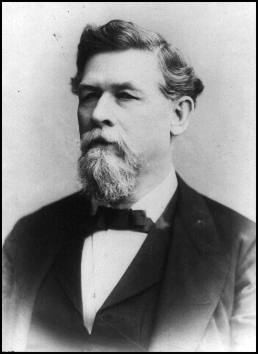Phillip Roddey facts for kids
Quick facts for kids
Philip Dale Roddey
|
|
|---|---|
 |
|
| Nickname(s) | Defender of North Alabama |
| Born | April 2, 1826 Moulton, Alabama |
| Died | July 20, 1897 (aged 71) London, England |
| Allegiance | |
| Service/ |
|
| Years of service | 1861–1865 |
| Rank | Brigadier General |
| Commands held | 4th Alabama Cavalry Regiment Roddey's Cavalry Brigade |
| Battles/wars | American Civil War |
| Other work | Commission merchant |
Philip Dale Roddey (born April 2, 1826 – died July 20, 1897) was a high-ranking officer, known as a brigadier general, in the army during the American Civil War. He was known for defending his home state of Alabama.
Contents
Early Life and Work
Philip Dale Roddey was born in Moulton, Alabama, in Lawrence County, Alabama. His father, Philip, was a saddler, and his mother was Sarah. Philip D. Roddey's tombstone says he was born in 1826. He grew up with little formal schooling.
Before the war, he worked as a tailor in Moulton. In 1846, he became the sheriff of Lawrence County, which means he was in charge of law enforcement there. He served as sheriff until at least 1852. Later, he bought a steamboat and operated it on the Tennessee River. He was married to Margaret A. McGaughey and they had two children.
Joining the War
When the American Civil War began in 1861, Roddey did not initially support the Southern states leaving the United States. He tried to stay out of the conflict. However, in February 1862, Union forces captured Fort Henry in Tennessee. This allowed Union gunboats to travel up the Tennessee River to Florence, Alabama.
To prevent his steamboat from being taken and used by the enemy, Roddey decided to burn it. After this, he formed a group of cavalry (soldiers who fight on horseback). He led this company at the Battle of Shiloh in April 1862, which was a major battle early in the war.
Leading His Troops
Roddey and his company were very active. In May 1862, General Braxton Bragg said that "Roddey is invaluable," meaning he was very important. In August 1862, Roddey led his cavalry in a surprise attack on Union forces. They captured 123 enemy soldiers.
Because of his success, Roddey was allowed to expand his command into a full regiment in October 1862. This became the 4th Alabama Cavalry. Roddey was promoted to colonel, a high rank. His regiment often served under famous generals like Nathan Bedford Forrest and Joseph Wheeler. They mainly fought in Tennessee and Alabama.
In December 1862, Roddey's command grew even larger. He was put in charge of all Confederate forces in the District of Northern Alabama. His soldiers were often armed with rifle-muskets, which are long guns, rather than carbines, which are shorter guns used by traditional cavalry. This meant they often fought on foot, even though they rode horses to get around.
The "Defender of North Alabama"
Roddey was promoted to brigadier general. He led his cavalry brigade, often working with General Forrest. His men were usually stationed in their home area. Because of this, Roddey became known as the "Defender of North Alabama."
In 1863, he fought to slow down Union General Grenville M. Dodge during a raid led by Abel Streight across Alabama and Georgia. In April 1864, Roddey's brigade moved to a different military department. They stayed in Alabama during General John Bell Hood's 1864 Nashville campaign.
After Hood's campaign failed, Roddey joined Forrest in trying to stop Union General James H. Wilson's cavalry raid into southern Alabama in March 1865. Roddey's command fought their last battle in April at the Battle of Selma. Here, Forrest's men were defeated by a larger and better-equipped Union cavalry force. Most of Roddey's soldiers were captured at Selma. The remaining soldiers surrendered in May 1865 in Alabama.
After the War
After the war ended, Philip Dale Roddey and his family moved to Tuscaloosa, Alabama. Later, he moved to New York City. There, he became a successful commission merchant, which means he bought and sold goods for other people. In the early 1890s, he moved to London, England, for business reasons. He passed away there in 1897.
 | James Van Der Zee |
 | Alma Thomas |
 | Ellis Wilson |
 | Margaret Taylor-Burroughs |

